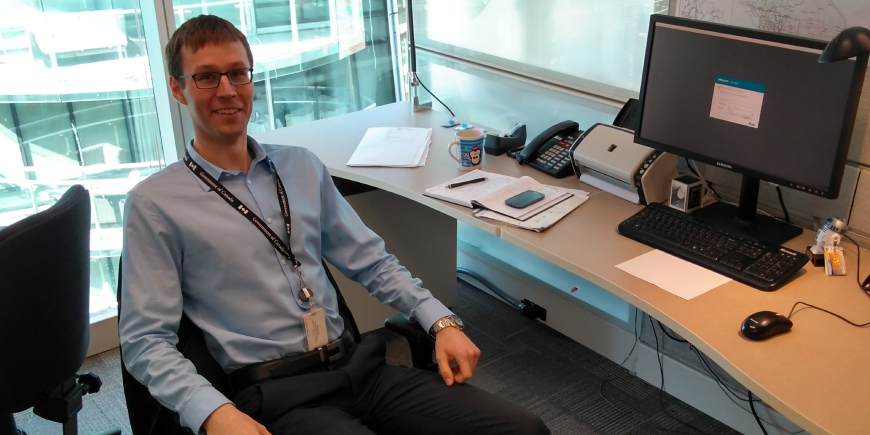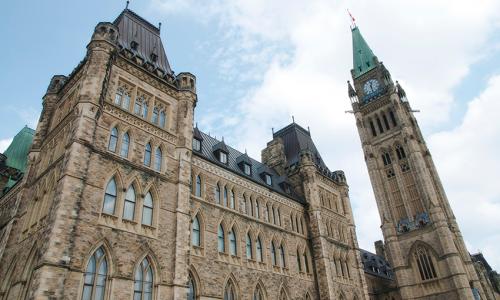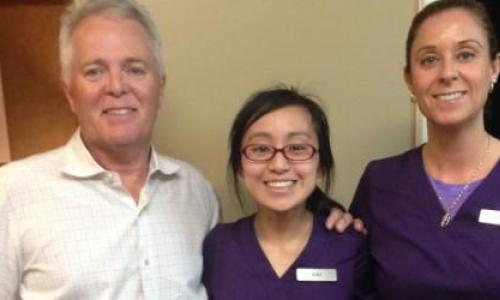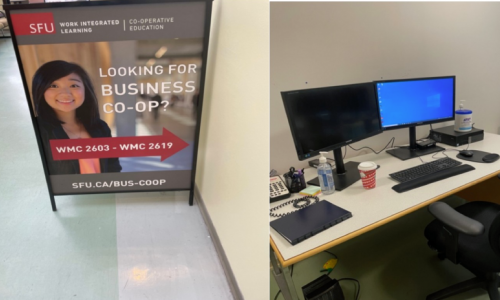
As an International Studies Major, I always envisioned myself working in co-op positions with an international focus. I had completed a previous semester working for the Consulate General of Mexico so the next logical step seemed to be applying to Global Affairs Canada. However, as I learned more about Canada's new “nation-to-nation” approach with Indigenous peoples, I began looking more closely at postings from Indigenous and Northern Affairs Canada (INAC). I found that the department hires many SFU co-op students from a wide variety of backgrounds and that the skills learned here can be applied to many jobs.
The Department’s Work
Canada’s relationship with Indigenous peoples is taking an increasingly visible and important role in both political and social discourse. Acknowledgement of past injustices and their legacies for Indigenous people today is an ongoing conversation across the country. In 2015, the Truth and Reconciliation Commission of Canada released a list of 95 “Calls to Action”- specific outcomes for Canada to attain on the path to reconciliation. In 2016, after being the lone objecting country, Canada endorsed the United Nations Declaration on the Rights of Indigenous People. Potential applicants may want to read these documents in advance to gain a better understanding of the work here.
In August 2017, the Government of Canada announced that as part of a new relationship with Canada’s Indigenous peoples, INAC will be split into two new departments: the Department of Indigenous Services Canada (DISC) and Crown-Indigenous Relations and Northern Affairs Canada (CIRNAC). This change is intended to transform the old structures of governance and advance the process of Reconciliation. My position falls under CIRNAC. The department’s responsibilities include developing new policy and negotiating agreements with Indigenous groups. Future Co-op applicants should keep this transformation in mind when researching positions here.
Life as a Co-op Student
I interviewed for several positions and was offered a job as a Junior Analyst in the Treaties and Aboriginal Government (TAG) section of CIRNAC. Our work focuses on negotiating modern treaties with First Nations in British Columbia. When someone mentions “unceded” lands, they are referring to land where a formal agreement with local indigenous people was never concluded. The lack of formal treaties in BC has created legal and economic challenges for much of the province’s history. It has also been a barrier to maintaining fair, transparent relationships with Indigenous peoples.
Junior Analysts can work in various units and roles within the department. My specific role is to review and provide feedback for project proposals from Indigenous groups who are negotiating treaties. These projects are called “Treaty Related Measures” (TRMs) and help to advance negotiations. These projects could involve land management, legal review, community engagement, fisheries, forestry, or preserving cultural heritage. Each proposal is reviewed to ensure it complies with guidelines on scope, objectives, costs, and level of detail. If there are any concerns, I follow up with the applicant First Nation and work with them to revise the proposal. Once the proposals are ready, they are submitted to a committee for final review. Working on the TRM Team has allowed me to develop my eye for detail and critical thinking. It has also taught me about project management and what kind of details reviewers watch for.
Co-op students perform a wide variety of tasks in the department. Depending on your position and team, you may be asked to conduct research, analyze data, prepare reports, produce meeting materials, or help administer programs. Working here is a great way to gain experience with practical skills which you can use in any job. Some of the other Co-op students on my floor assist Treaty Negotiators or help in policy development.
My work term is at the downtown Vancouver office but there are frequently Co-op opportunities to work in other offices around the country. Candidates in my interview pool were asked to specify if they would be interested in working in the Yukon. There are also many opportunities at headquarters in Ottawa.
The Work Environment
What impressed me the most about my first days on the job was how supportive the workplace culture of the department is. My supervisors and colleagues have always been helpful and patient as I learn the role. The position also offered flexible working hours, which has made it easy to maintain a work-life balance. The organization also believes in continuing education for employees: I have already had the opportunity to attend workshops on interviewing for government jobs and mental health in the workplace.
Working in this transforming department is an exciting experience with many opportunities for learning and growth. In addition to my regular duties, my supervisor has arranged for me to attend negotiation sessions with First Nation and provincial representatives. These memorable experiences have added great value to my time working here.
Conclusion
Working at INAC (or CIRNAC) has been a great opportunity for me. I have learned much in this role and I feel the skills and experience gained here will help me secure employment in the future. The learning opportunities and the welcoming environment make this an ideal Co-op work term.
Beyond the Blog
-
Want to learn more about Co-op? Check out the FASS Co-op page!














